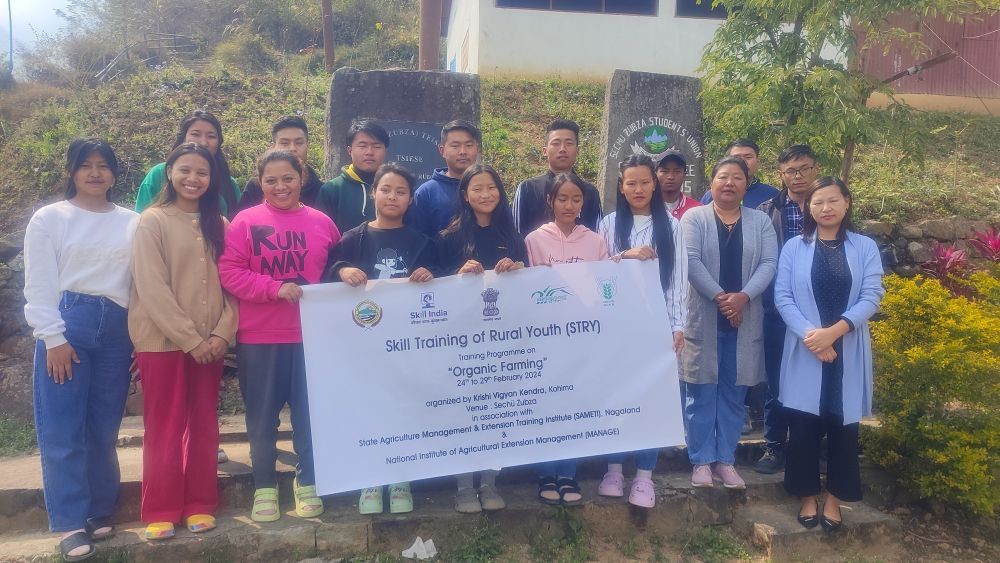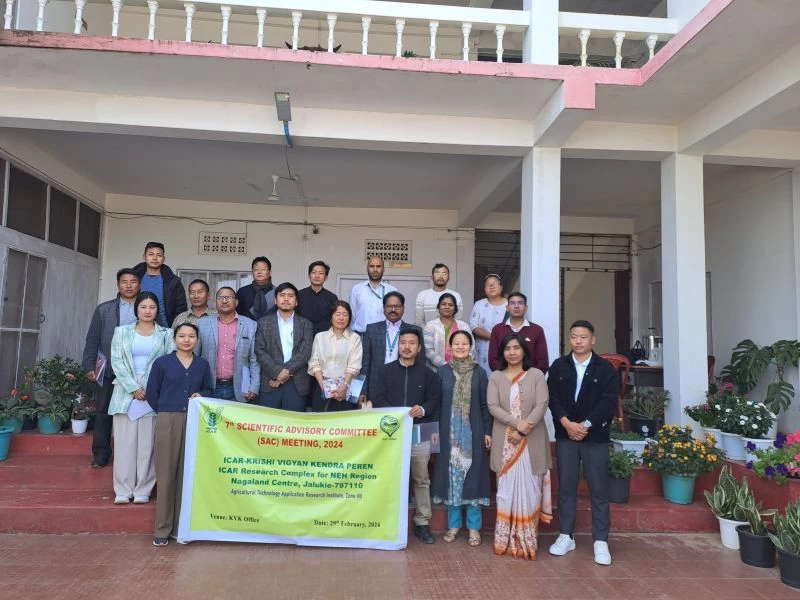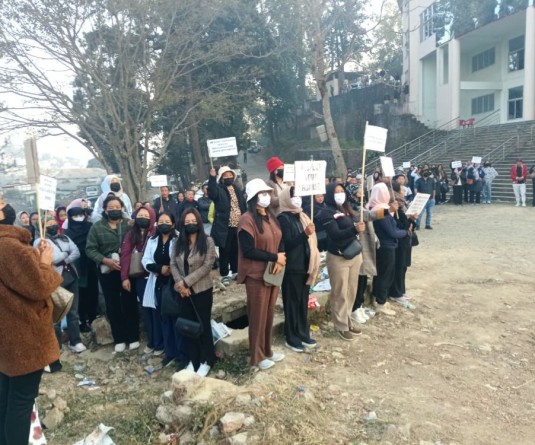
Dimapur, March 3 (MExN): The Krishi Vigyan Kendras (KVKs) across Nagaland have conducted various activities in the recent past including skill training and Scientific Advisory Committee (SAC) meetings.
Kohima: The KVK Kohima in association with State Agricultural Management and Extension Training Institute (SAMETI) Nagaland, and National Institute of Agricultural Extension Management (MANAGE) Hyderabad, organised Skill Training of Rural Youth on organic farming from February 24-29 in Sechu Zubza Village.
Chairing the inaugural, Dr Ruokuovilie Mezhatsu, Principal Scientist & Head KVK Kohima encouraged the trainees to skill themselves with the technical knowledge and sincerely put them into practice.
Training Course Director Puchono Kweho said the programme was aimed at imparting skill-based training on organic farming to rural youths in compliance with National Policy on Skill Development & Entrepreneurship-2015 to promote employment in rural areas.
The Course Director and Dr Martina Shitiri (ACTO, Plant Breeding) covered a range of topics including scope and opportunities under organic farming and hands on demonstration on biofertilisers and vermicomposting. Certificates were distributed to all 15 successful trainees.
Peren: The KVK Peren conducted the 7th SAC meeting at College of Veterinary Science & Animal Husbandry, CAU Jalukie, Conference Hall on February 29 with EAC Peren Pauding Disuang as Special guest and Dr I Shakuntala, Dean, College of Veterinary Science & AH, CAU, Jalukie as guest of honour.

At the meeting, the Dean suggested to take identification of problem seriously as the data generated from the study would be taken for planning at the national level.
Chairing the meeting, HORC, ICAR Nagaland Centre, Dr H Kalita also batted takingup medium duration variety crops to enhance cropping variety, to promote jalkund technology for conservation of water in hilly region for life saving irrigation in vegetable crops. He urged the state officials to support the KVK.
The Annual Progress Report 2023 of KVK Peren was presented by Dr KL Meena, Principal Scientist & Head, KVK Peren while the Annual Action Plan, 2024 was presented by Dr Babita Devi, Chief Technical Officer (CTO), Animal Science.
Officials from Agriculture, Horticulture, Veterinary, Fishery, ATMA, Sericulture, CVSc CAU, Scientist from ICAR Nagaland Centre, KVK Dimapur, CEOs of Peren, Tening & Jalukie FPOs and Progressive entrepreneur from Jalukie and Nkwareu were present the meeting.
It was attended virtually by Dr BP Singh, Head, DTEC; Dr AK Sinha, Principal Scientist, ATARI, Zone VII; Dr M Islam, Principal Scientist & head cum Nodal Officer, KVKs of ICAR Barapani; Senior Scientist & Heads of KVK Kiphire and Longleng.
Wokha: The ICAR-KVK Wokha successfully conducted its 17th SAC meeting at the KVK Conference Hall on February 28,
Presiding the meeting, SAC Chairman Dr Kalita provided insights into the mandate the KVK and emphasised on the dissemination of sustainable and resilient farming technologies at the grassroots level to enhance farmers’ production and income.
He also stressed the importance of working in convergence mode with various line departments for entrepreneurship development in rural areas.
37 heads and officials from line departments of Wokha district including Agriculture, Horticulture, Fishery, Forestry, Soil, Sericulture, Veterinary, ATMA, DDM-NABARD, representatives from Farmers Producers Organisations (FPOs), progressive farmers and farm women attended the meeting.
Dr Singh; Dr Sinha, Dr Islam; Principal Scientist of KVK Peren; Senior Scientists from KVK Longleng, Kiphere, and the Scientists from ICAR Nagaland Centre virtually joined the meeting.
At the meeting, Dr Moaakum Pongen, CTO presented the Action Taken Report (ATR) on the recommendations made during the last SAC meeting Annual Progress Report (APR) for the year 2023.
Dr Sandeep Deshmukh, Senior Scientist and Head of ICAR-KVK Wokha presented the Annual Action Plan for the year 2025.
During interactive session, officials from line departments have emphasised the pivotal role of KVKs in identifying and addressing the diverse challenges encountered by the farmers. They also underscored the significance of KVK in collaborating with line departments to ensure a more inclusive approach to address agricultural issues in the district.






